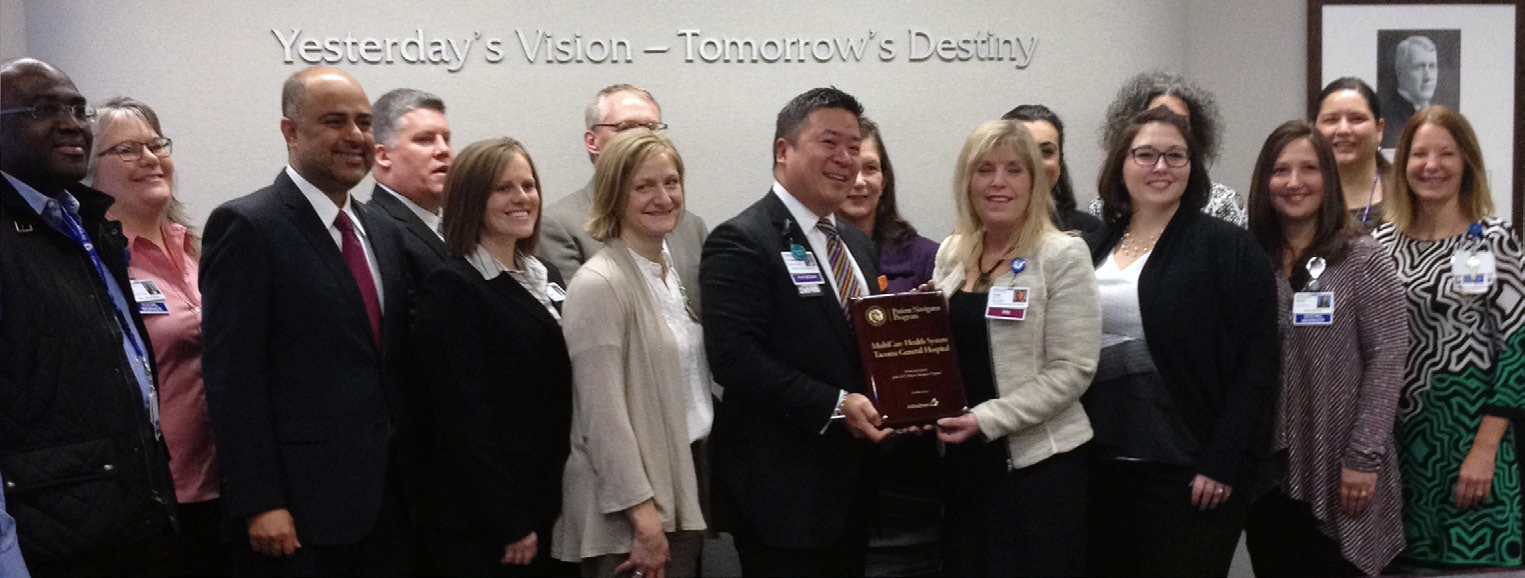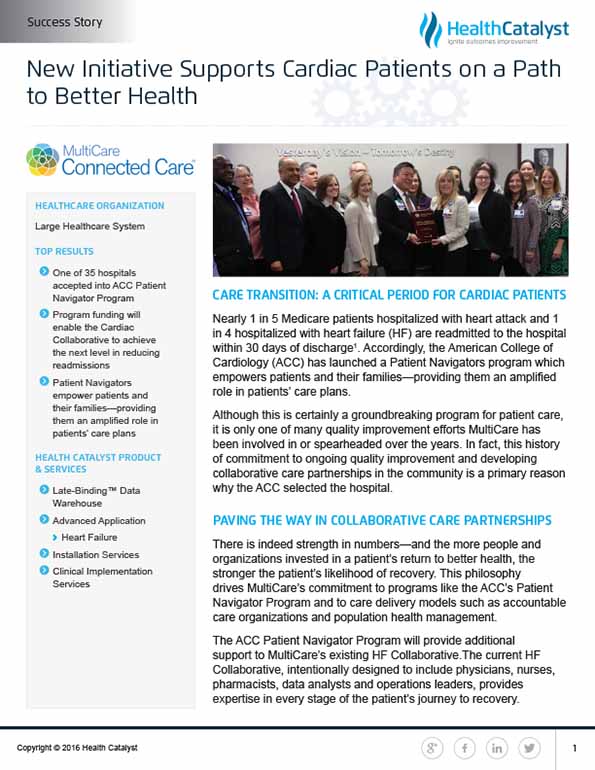MultiCare has improved cardiovascular care, achieving a 24 percent decrease in heart failure readmissions and an 18 percent reduction in mortality rates. As a participant in the American College of Cardiology’s Patient Navigator program, MultiCare is committed to further enhancing cardiac care and assisting patients in improving their health.
Nearly one in five Medicare patients hospitalized with heart attack and one in four hospitalized with heart failure (HF) are readmitted to the hospital within 30 days of discharge1. Accordingly, the American College of Cardiology (ACC) has launched a Patient Navigators program which empowers patients and their families—providing them an amplified role in patients’ care plans.
Although this is certainly a groundbreaking program for patient care, it is only one of many quality improvement efforts MultiCare has been involved in or spearheaded over the years. In fact, this history of commitment to ongoing quality improvement and developing collaborative care partnerships in the community is a primary reason why the ACC selected the hospital.
There is indeed strength in numbers—and the more people and organizations invested in a patient’s return to better health, the stronger the patient’s likelihood of recovery. This philosophy drives MultiCare’s commitment to programs like the ACC’s Patient Navigator Program and to care delivery models such as accountable care organizations and population health management. The ACC Patient Navigator Program will provide additional support to MultiCare’s existing HF Collaborative. The current HF Collaborative, intentionally designed to include physicians, nurses, pharmacists, data analysts, and operations leaders, provides expertise in every stage of the patient’s journey to recovery.
Because MultiCare regards continuous improvement as an essential value, the HF Collaborative has spent the past three and a half years increasing the quality and standardizing the care for HF and acute myocardial infarction (AMI) patients. Through the efforts of this dedicated team, MultiCare has seen the following outcome improvements in HF patients (2011 to February 2015):
MultiCare credits these successes to having engaged clinicians with access to automated, near real-time healthcare analytics and other decision-making tools, as well as to the health system’s best-practice guidelines and framework of holistic care pathways.
While MultiCare has already seen success with designing and deploying best practices and care paths for cardiac patients, joining the ACC program presents a new opportunity to help patients navigate these pathways by providing them with an advocate—the role of Patient Navigator. “The ACC program is an important component that complements activity we’ve been involved in for some time to support our strategic focus—which is to deliver quality patient care, experience, and affordability,” says Dr. Christopher Kodama.

Certain elements are considered essential in optimizing the effectiveness of the Patient Navigator Program:
And, an equally essential component required to ensure the ACC Patient Navigator Program’s success: Implemented improvements must be sustained.
“We can no longer afford to think in a ‘bricks and mortar’ mentality that what happens in the hospital stays in the hospital and that everything that happens outside of it is invisible. That’s just not the practical reality of how we all experience healthcare.”
– Christopher Kodama, MD President MultiCare Connected Care
Through participation in the Patient Navigator Program, MultiCare will have the resources and the ability to bring the patient voice more directly to MultiCare’s cardiac program—and through their learnings, lay the groundwork for helping other vulnerable patient populations.




